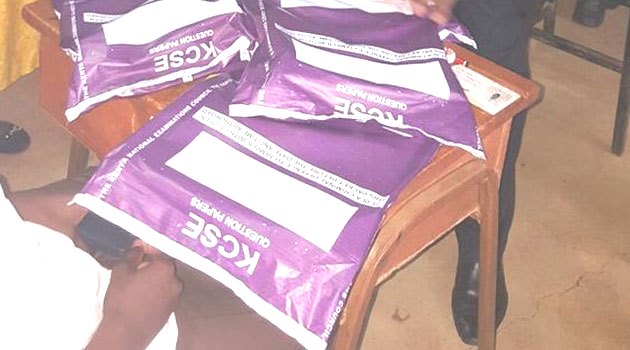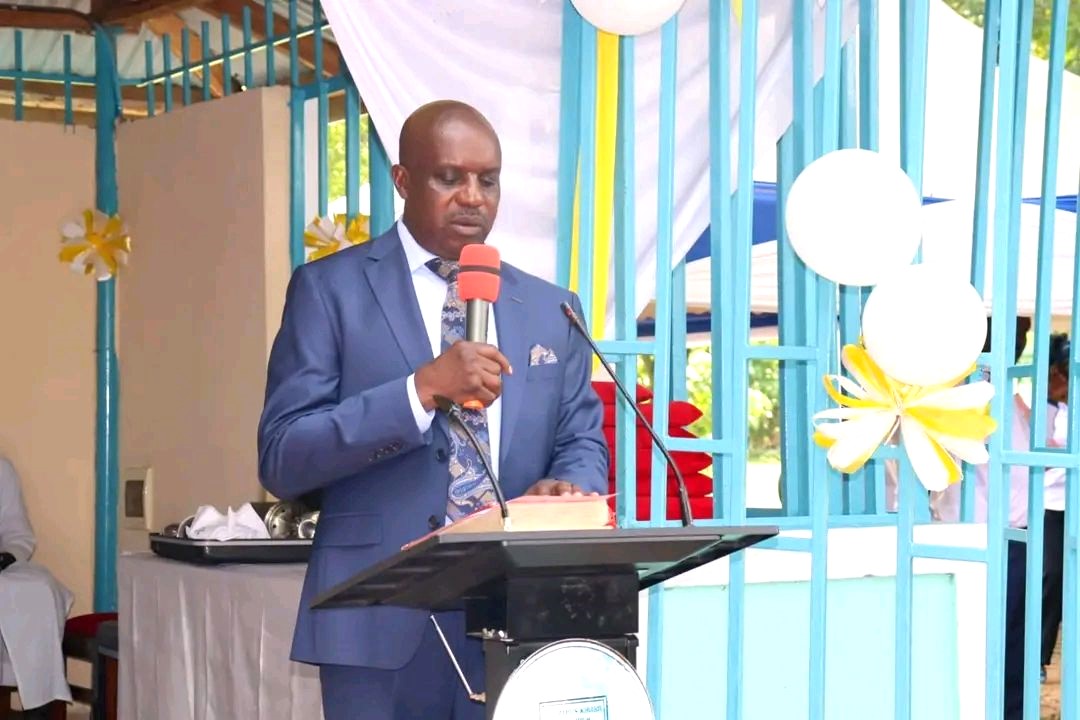Let’s stop dancing around the truth. The bulk of KCSE examination malpractice lies squarely at the feet of centre managers—the principals. It is time we faced this uncomfortable reality: the credibility of the Kenya Certificate of Secondary Education (KCSE) examination rises or falls on the integrity, vigilance and leadership of the person in charge of the examination centre.
Every year, as exam season approaches, we hear the same chorus: arrests of teachers, students, and outsiders caught with examination papers; statements from the Kenya National Examinations Council (KNEC) about tight security; and the occasional outcry from parents about leaked papers or suspiciously inflated results. Yet, year after year, the script doesn’t change. Why? Because we have refused to hold the one person truly accountable: the centre manager.
The centre manager is not a ceremonial figure. He or she is the chief custodian of the examinations at the school level. The manager receives the papers from the container, ensures their security, oversees the invigilation process and returns the scripts after each session. Every malpractice within an examination centre – from early exposure to assistance inside the rooms – happens under the nose of the centre manager. If anything went wrong, the manager either knew, allowed it, or looked the other way.
Let us be brutally honest: cheating cannot happen in a school unless the centre manager permits it, by action, omission or complacency. The so-called “leakages” within centres are not miracles. They are the product of collusion between corrupt teachers, invigilators, and supervisors – all operating within an ecosystem supervised by the centre manager. When a candidate mysteriously has access to answers before a paper begins, when teachers are found scribbling solutions in staff quarters, when phones loaded with exam materials are discovered in dormitories – these are not random acts. They are symptoms of managerial failure and moral decay at the top.
Centre managers have immense authority. They determine who will invigilate, how supervision will be conducted, and where the papers will be kept between sessions. They control the flow of information. They know every corner of their school. If exam cheating occurs in the dormitory, library, laboratory or staff room, they cannot claim ignorance. If a supervisor or invigilator is compromised, the centre manager either failed to notice or deliberately chose to remain silent.
READ ALSO:
From West Pokot to CUEA: Alvin Simiyu’s love for English becomes his ladder to success
We must stop treating centre managers like innocent bystanders in a crime happening in their backyard. They are the captains of their ships. When a boat sinks, you don’t arrest the sailors and spare the captain. You hold the captain accountable. Similarly, when an examination centre is found to have engaged in malpractice, the first question must be: where was the centre manager?
It is disturbing that some principals have turned the examination season into a high-stakes business venture. They collude with teachers and outsiders to “fix” results so their schools appear on the national charts. In some cases, they collect money from desperate parents, promising that their children will “pass.” Others allow certain subject teachers to sneak in answers during practical sessions, or to supervise their own candidates under the guise of “assisting with discipline.” These acts, though subtle, amount to institutional fraud—and they erode the integrity of the entire education system.
The moral bankruptcy of a few centre managers has stained the sweat and sacrifice of thousands of honest teachers and candidates across Kenya. Genuine schools that work hard, follow the rules, and maintain integrity are often overshadowed by others that cheat their way to the top. This must end. The KCSE certificate is not just a piece of paper; it is a national covenant of trust. It must mean something.
KNEC and the Ministry of Education must now draw a firm line in the sand. Any case of malpractice within a centre should automatically trigger an investigation into the centre manager. The presumption must shift: the manager is guilty until they prove they took every possible step to prevent cheating. This is not unfair—it is accountability.
Furthermore, KNEC should maintain a blacklist of centre managers whose schools have been implicated in exam irregularities, barring them from future examination duties or administrative appointments. Let accountability be personal and public. When the consequences are real, the temptation to cheat will diminish.
To support honest managers, KNEC must also strengthen the monitoring framework. Unannounced visits by multi-agency teams, deployment of independent invigilators, and secure digital tracking of examination materials can close the loopholes. But even with the best systems, integrity remains a personal choice. No rulebook can replace conscience.
As a nation, we must stop glorifying “mean scores” and start celebrating merit. When a centre manager feels pressure to produce results at any cost, the temptation to cheat becomes strong. Parents, boards of management and education officials must stop rewarding fraud disguised as excellence. Let us build a culture where honesty is celebrated more than grades.
In the end, the battle for exam integrity will not be won by more security seals or more police at the containers. It will be won in the hearts of those we entrust with the sacred duty of administering national examinations. The centre manager is the moral compass of the school during KCSE. If they tilt toward corruption, the entire process collapses.
The time for polite excuses is over. If malpractice happens in your school, it happened under your watch. The buck stops with you.
By Ashford Kimani
Ashford teaches English and Literature in Gatundu North Sub-county and serves as Dean of Studies.
You can also follow our social media pages on Twitter: Education News KE and Facebook: Education News Newspaper for timely updates.
>>> Click here to stay up-to-date with trending regional stories
>>> Click here to read more informed opinions on the country’s education landscape
>>> Click here to stay ahead with the latest national news.






